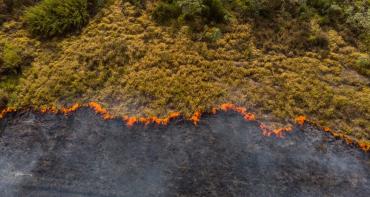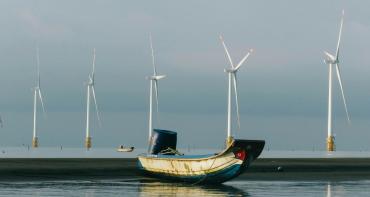Commonwealth countries committed to saving the ocean will benefit from new knowledge gained from the Seychelles, which has just designated almost a third of its ocean as marine protected areas (MPAs).

Commonwealth countries committed to saving the ocean will benefit from new knowledge gained from the Seychelles, which has just designated almost a third of its ocean as marine protected areas (MPAs).
The island nation recently set aside 30 per cent of its marine territory, or about 410,000 square kilometres, to be legally protected from activities that damage the marine environment.
Other than sustainable tourism, the new laws will ban almost all human activity in half of the protected areas, while allowing only low-impact sustainable businesses to operate in the other half.
The milestone is a culmination of six years of intense technical and legal work, scientific research, as well as community and political engagement.
Commonwealth Secretary-General Patricia Scotland said: “Seychelles has demonstrated remarkable leadership as the ‘champion country’ for marine protected areas under the Commonwealth Blue Charter. It is immensely encouraging to see how the experiences, insights and lessons learned from Seychelles will inspire and catalyse other member states who also wish to protect their ocean.
“Marine protection goes beyond conservation, allowing for the development of ‘blue’ economies based on sustainable ocean activity. A healthy ocean also presents enhanced opportunities for economic recovery post COVID-19, and for building resilience and withstanding the impacts of natural disasters and extreme weather events.”
The new marine spatial plan maps out the entirety of Seychelles Exclusive Economic Zone (spanning 1.37 million square kilometres) and was financed through an innovative ‘debt-for-nature’ swap co-designed by the Government of Seychelles and The Nature Conservancy.
Path to success
Alain de Comarmond, Principal Secretary of Environment at the Ministry of Environment, Energy and Climate Change of Seychelles stressed that countries would need to set their own targets and methods according to their own circumstances.
He outlined four basic elements that led to Seychelles’ success: political support, efficient partnerships, a robust framework for implementation, and patience.
He explained: “The starting point in all of this is the political support and commitment. The President and political leaders wPere clear about the objective for Seychelles, and the Cabinet was updated regularly on all progress of our work.
“Finding the right partnerships is also very important. For small developing states like Seychelles, most of us do not have all the technical capacity or knowhow needed. We were very lucky to have a very strong partner in The Nature Conservancy, which provided technical and financial assistance.”
Mr de Comarmond added that a well-oiled chain of teams and committees across various agencies helped to ensure that the process was inclusive. The government recognised that the business community and civil society needed to be fully engaged and take ownership.
He said: “We took a very patient and persistent approach, investing a lot of time in building trust and getting the agreement from all our stakeholders. Proposals were always backed with scientific data.”
Seychelles’ achievement of 30 per cent coverage is far beyond international targets of 10 per cent by the end of this year. However, a growing number of Commonwealth countries are supporting a more ambitious target of 30 per cent by 2030, to be agreed at the next UN Biodiversity Conference.
Blue Charter Champion
Under the Commonwealth Blue Charter, Seychelles leads an action group of 16 member countries, including: The Bahamas, Barbados, Belize, Dominica, The Gambia, Ghana, Jamaica, Kiribati, Papua New Guinea, Samoa, Sri Lanka, St Kitts and Nevis, Tonga, the UK and Vanuatu.
Head of Oceans and Natural Resources at the Commonwealth Secretariat, Nicholas Hardman-Mountford, said: “A key goal of the Blue Charter is to share knowledge and experiences, while working together to scale up strategies, in this case for the effective management, monitoring and enforcement of MPAs.”



